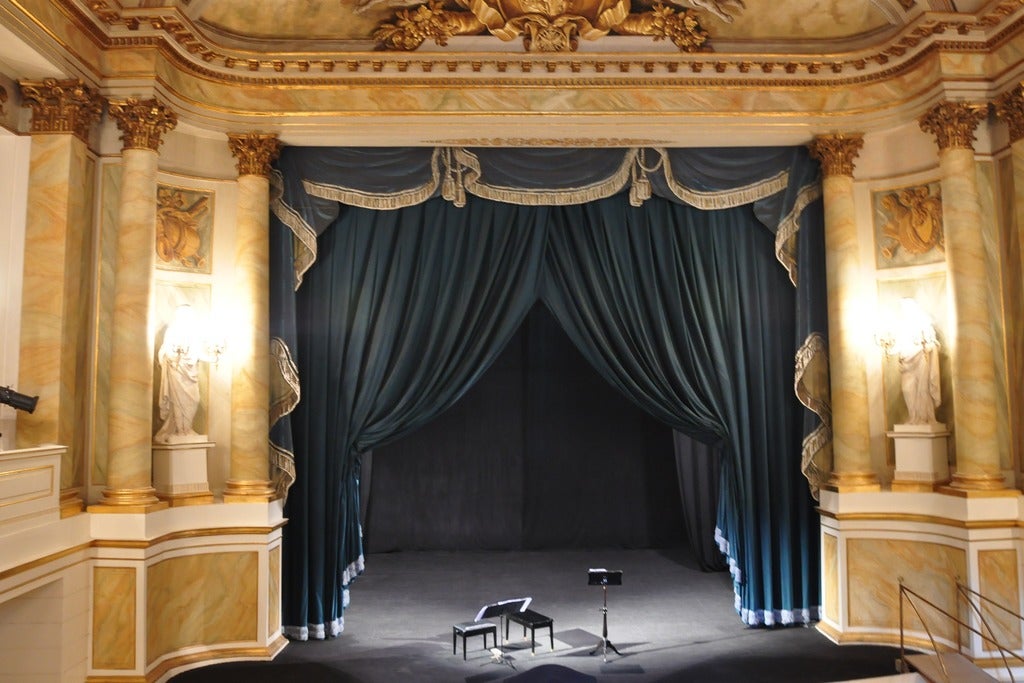With its fascination for Egypt, 19th century Europe seems to have embarked on an intoxicating voyage down the Nile, marvelling at the colours of that great river and of the Egyptian sky, rediscovering monuments that are not so much palaces and towns but enigmatic sanctuaries of both the genius and the folly of humanity. Aida is one of the most celebrated examples of this "Egyptomania" albeit one of the most contradictory: commissioned by Ismail Pasha, the project of a work to be performed in honour of the inauguration of the Suez Canal was initially rejected by Verdi. However, a second commission for an operatic work to be performed in the new theatre in Cairo was later, somewhat condescendingly, accepted. Verdi had no inclination for exoticism and any concessions were, for him, out of the question. This opera, intended as a celebration of universal concord and harmony between nations with all the pomp and ceremony appropriate to such solemn occasions, is in fact entirely about conflict: the war between Egypt and Ethiopia is nothing compared to that which opposes the characters to each other. Their bloody confrontations give way, in turn, to the conflict within each individual. A work both flamboyant and hieratic, spectacular and intimate, and one of Verdi's most beautiful masterpieces, Aida returns to the Paris Opera after more than half a century's absence.
Cast and Creative team for Aida at Opéra national de Paris - Opéra Bastille
Olivier Py Stage director
Pierre-André Weitz Sets and costumes
Bertrand Killy Lighting
Patrick Marie Aubert Chorus master
Carlo Cigni Il Re
Luciana D’intino (A) ?Elena Bocharova (B) Amneris
Oksana Dyka (A) ? Lucrezia Garcia (B) Aida
Marcelo Alvarez (A) ? Robert Dean Smith (B) Radamès
Giacomo Prestia Ramfis
Sergey Murzaev Amonasro
Elodie Hache Sacerdotessa
Videos

|
The Music of Hans Zimmer & Others
Maihaugsalen (11/19 - 11/19) | |

|
Derfor skaber du dit eget liv - med baggrund i kvantefysikken
Sønderborghus (5/14 - 5/14) | |

|
LE BRACELET
GARE DU MIDI (5/3 - 5/3) | |

|
KAVI esittää: Andrzej Wajda: SUKUPOLVI
Studio, Kulttuuritalo Valve (3/18 - 3/18) | |

|
LES CHATOUILLES
LA PEPINIERE THEATRE (2/4 - 4/26) | |

|
The Mystery of Banksy
Art Maze (5/16 - 9/21) | |

|
Danske Drabssager - en aften med eksperterne
Magasinet (10/6 - 10/6) | |
| VIEW SHOWS ADD A SHOW | ||
Recommended For You


